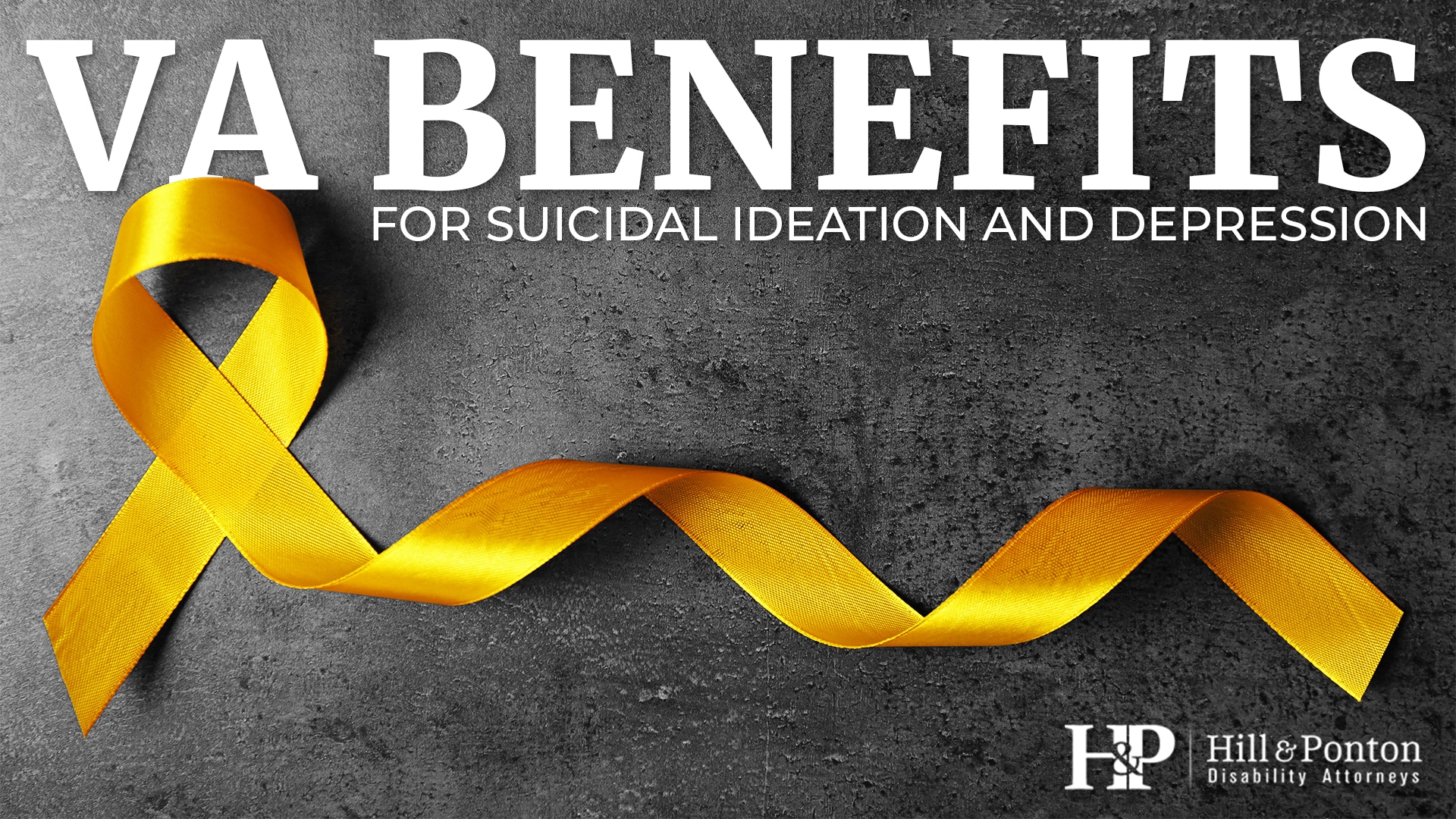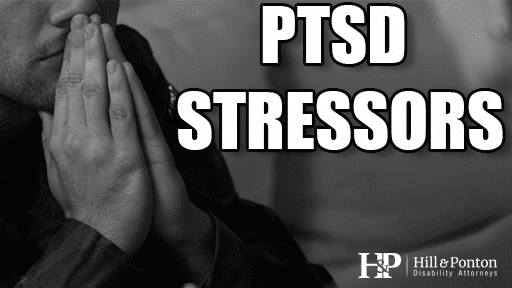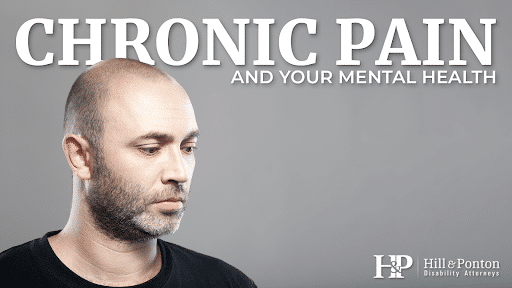Post-traumatic stress disorder (PTSD) can occur as a result of traumatic events during military service, whether in combat or non-combat situations. If you’re a veteran suffering from PTSD from a non-combat traumatic incident, understanding the VA disability rating system is key to accessing the benefits you deserve.
This guide explains how non-combat PTSD stressors qualify for VA disability benefits, what evidence is required, and how the VA assigns disability ratings for PTSD.
Service Connection for Non-Combat PTSD
To receive VA disability benefits for non-combat PTSD, veterans must prove their condition resulted from an event during active service. Unlike combat PTSD claims, non-combat PTSD requires credible supporting evidence that connects the trauma to military service. Evidence to support your claim may include:
- Statements from mental health professionals
- Lay statements from family, friends, or fellow service members
- Medical records diagnosing PTSD
- Newspaper articles or other documentation verifying the event
VA Attorney Tips
Disability lawyer Rachel Cheek talks to Hill & Ponton’s Nate about service connecting a mental health issue, common pitfalls to avoid, and how to maximize your benefits.
Our PTSD lawyers are highly experienced in getting maximum compensation for veterans with non-combat PTSD and may be able to help you appeal if you were denied a rating. Get a free evaluation of your claim today.
Free case evaluationHow the VA Rates Non Combat PTSD
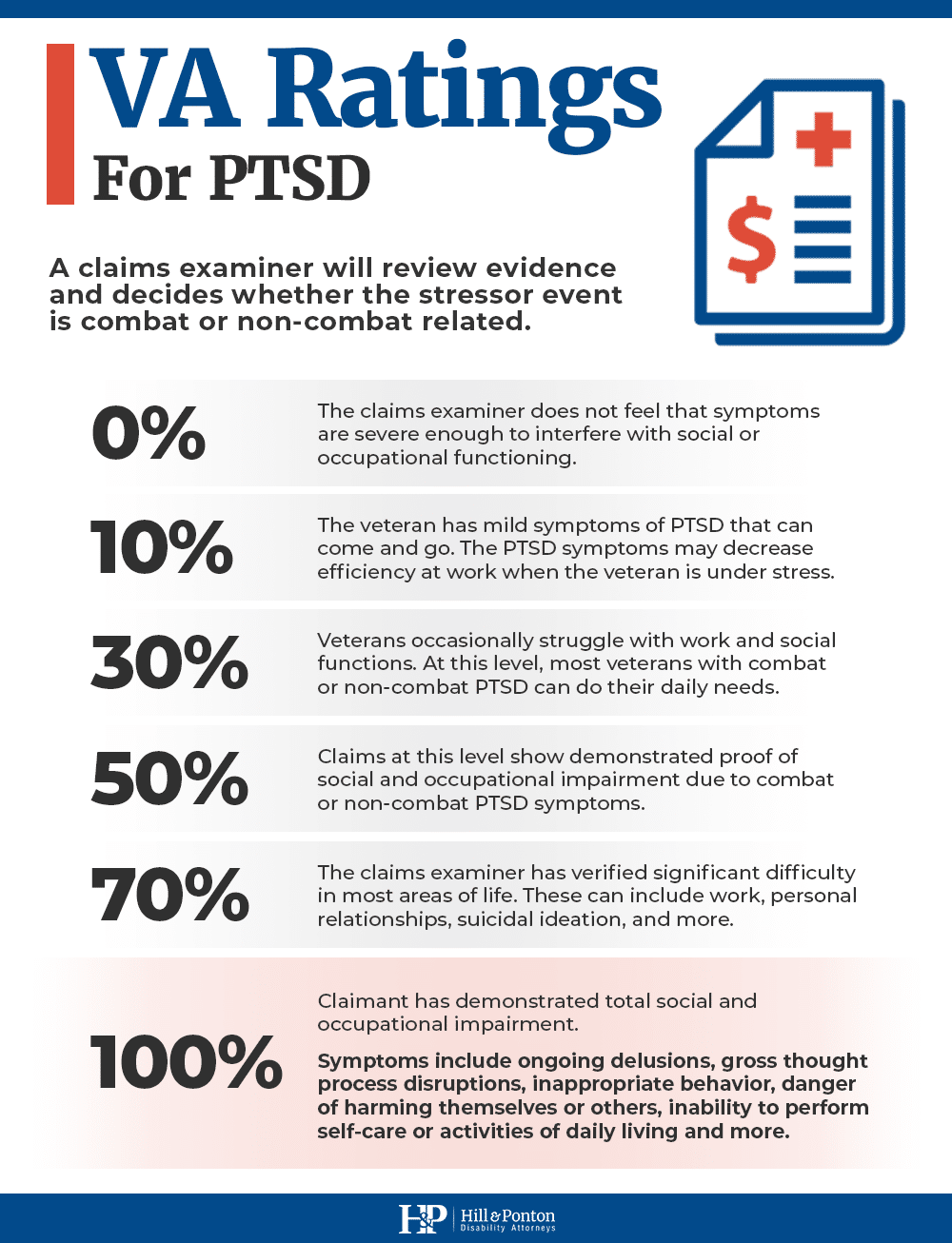
The VA assigns disability ratings for PTSD in increments of 0%, 10%, 30%, 50%, 70%, and 100%, based on the severity of symptoms and their impact on daily life. Below is a breakdown of the ratings the VA may assign to your non-combat PTSD:
0% Rating
- PTSD is diagnosed, but symptoms do not impair work or social function.
- No need for continuous medication.
10% Rating
- Mild symptoms that appear occasionally under stress.
- PTSD is managed with medication and does not significantly impair daily life.
30% Rating
- Symptoms occasionally interfere with work and social function.
-
Common symptoms:
- Chronic sleep issues
- Panic attacks (less frequent)
- Anxiety, depression, or suspiciousness
- Mild memory loss
50% Rating
- Noticeable occupational and social impairment.
-
Common symptoms:
- Frequent panic attacks (more than once per week)
- Significant memory issues
- Flattened affect (lack of emotion)
- Difficulty maintaining relationships
- Reduced productivity and motivation
70% Rating
- Significant impairment in most aspects of life, including work and relationships.
-
Common symptoms:
- Suicidal thoughts
- Illogical speech or obsessive behaviors
- Severe depression or panic attacks
- Impaired self-care and personal hygiene
- Difficulty coping with stress or interacting with others
100% Rating
- Total occupational and social impairment.
-
Common symptoms:
- Severe memory loss (e.g., forgetting names of family members)
- Hallucinations or delusions
- Disorientation
- Danger of harming oneself or others
- Inability to perform daily tasks or self-care
Non-Combat PTSD Stressors
Non-combat PTSD can result from various traumatic experiences during military service. Examples include:
- Military Sexual Trauma (MST)
- Witnessing death or severe injury
- Survivor’s guilt
- Exposure to violence
- Threats of hostile military action
These events can leave lasting psychological scars, similar to combat-related PTSD. Unfortunately, veterans with non-combat PTSD often face additional challenges proving their claims.
Military Sexual Trauma (MST) and PTSD
Military Sexual Trauma (MST) includes:
- Sexual assault
- Unwanted touching or advances
- Threats or coercion for sexual favors
- Offensive, sexually suggestive remarks
The VA takes MST seriously, regardless of rank, location, or duty status. Veterans can file a PTSD claim based on MST and receive counseling and support from the VA. It’s important to note that while commonly associated with female veterans, male veterans can be diagnosed with PTSD caused by MST, too.
PTSD from Witnessing Death
Non-combat veterans may also develop PTSD from witnessing death caused by events such as terrorist attacks, accidents, or natural disasters. Providing credible evidence of these events (such as buddy statements or medical evaluations) can strengthen a claim.
PTSD from Witnessing Combat
Although veterans do not have to provide evidence of combat PTSD stressors, it is helpful to know some of the most common ones. These include surviving an enemy ambush, surviving an IED, being present in combat when fellow soldiers died from such events, and/or a flight deck plane crash. People filing for a VA disability claim will need to describe the event and when and where it occurred.
VA Form 21-0781: Submitting Evidence for PTSD Claims
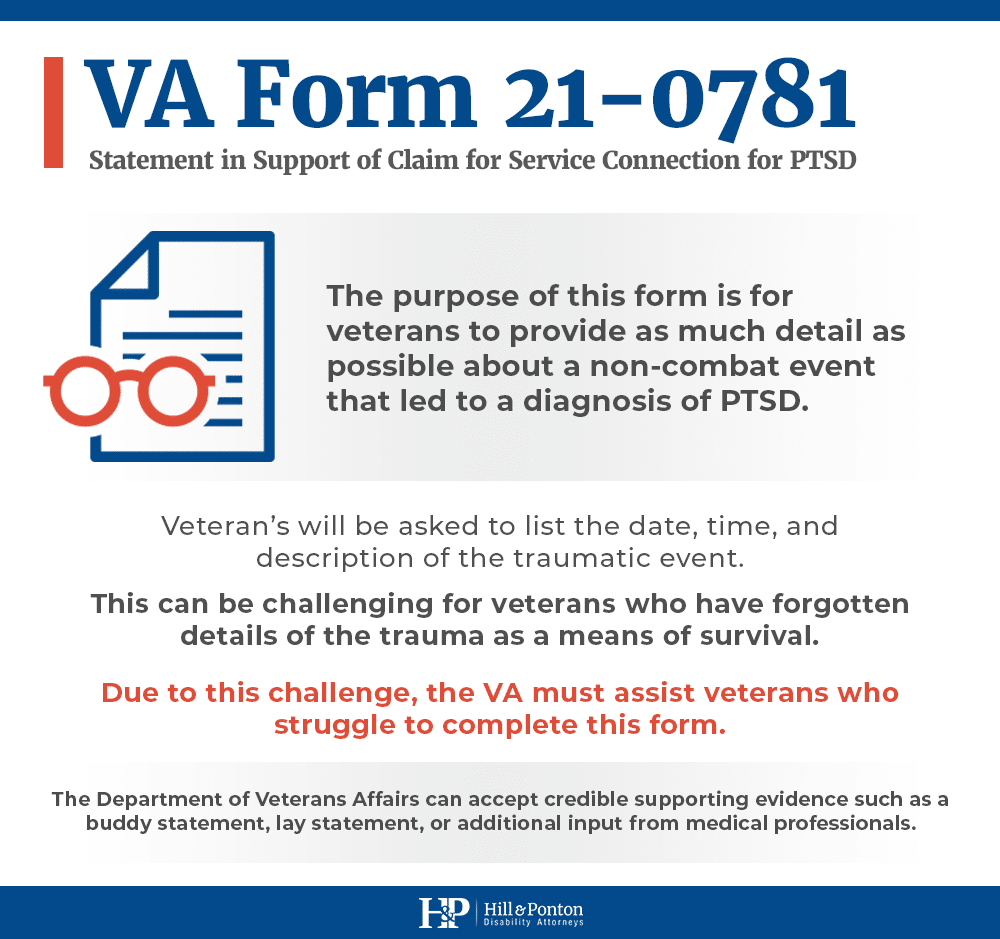
When filing a claim for PTSD, veterans must complete VA Form 21-0781. This form requires:
- Date, time, and description of the traumatic event
- Supporting evidence such as buddy statements, lay statements and medical opinions
The VA recognizes that recalling traumatic details can be difficult. Veterans can request assistance from the VA to complete this form.
Get Help with Your Claim
Navigating the VA claims process for PTSD can feel overwhelming, especially when reliving traumatic memories. Whether you are filing for non-combat PTSD rating or appealing a denial, you don’t have to go through it alone.
At Hill & Ponton, we specialize in helping veterans secure the benefits they deserve for PTSD. If your claim for PTSD benefits has been denied or you believe your disability rating is too low, our experienced attorneys are here to help. Contact us today for a free case evaluation.

